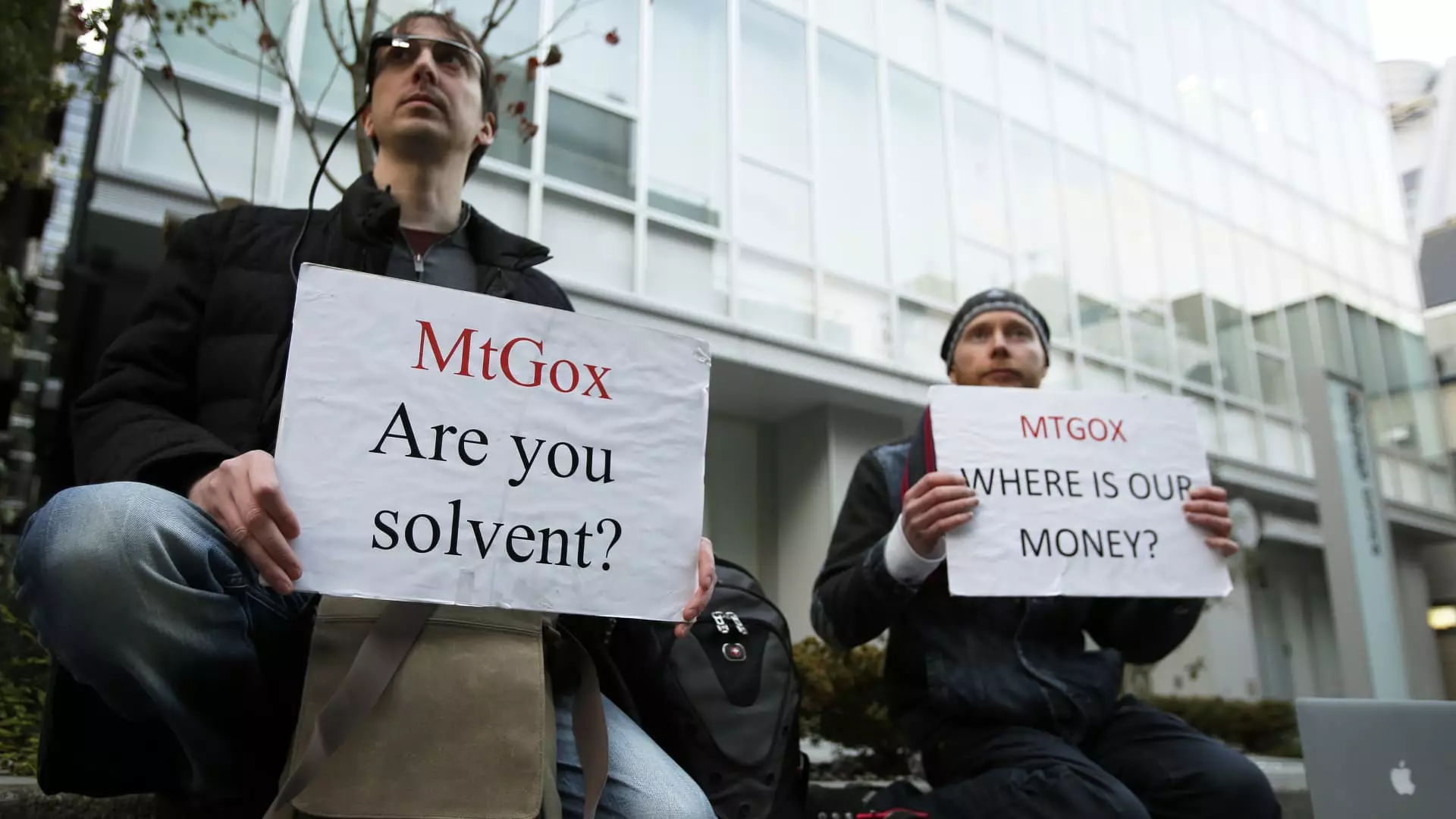The infamous Mt. Gox, once the largest spot bitcoin exchange in the world, collapsed into bankruptcy a decade ago after a devastating hack that resulted in the loss of up to 950,000 bitcoins. This incident, which occurred in 2011 when bitcoin was trading for a fraction of its current value, left many creditors in despair. However, after years of waiting, these creditors are finally set to receive their long-awaited payouts.
Among the claimants awaiting repayment is Illinois native Gregory Greene, who filed a class action lawsuit against Mt. Gox and its former CEO after the exchange declared bankruptcy in 2014. At the time of the hack, Greene’s frozen account contained $25,000 worth of bitcoin, which would now be valued at around $2.5 million based on current prices. According to experts, creditors are about to receive a historic windfall, with the total amount of bitcoin to be returned estimated at $9 billion.
Mt. Gox, whose acronym stands for “Magic: The Gathering Online Exchange,” was a popular online marketplace for buying and selling bitcoin using different currencies. It claimed to handle around 80% of all global dollar trades for bitcoin at the peak of its success. However, a series of heists in 2014 led to its downfall, with the exchange blaming a bug in the cryptocurrency’s framework for the disappearance of the bitcoins. This event marked the beginning of a long and arduous legal battle that is finally coming to a close.
The court-appointed trustee overseeing Mt. Gox’s bankruptcy proceedings announced that distributions to the firm’s 20,000 creditors would begin next month. Creditors will receive their repayments in a mix of bitcoin and bitcoin cash, with the option to choose between fiat or cryptocurrency. While some creditors are expected to cash out immediately, others plan to hold onto their assets, believing in the long-term potential of bitcoin.
Analysts have raised concerns about potential selling pressure from Mt. Gox creditors, which could create a short-term downside risk for the cryptocurrency market. However, they also predict that any sell-offs are likely to be temporary, with prices rebounding in the months following the distribution of payouts. The true believers who have held onto their claims for over a decade are expected to remain steadfast in their commitment to bitcoin.
Many Mt. Gox creditors have opted for in-kind reimbursements to avoid significant capital gains taxes, while others see the potential for further price gains in the future. Some investors are considering using their bitcoin as collateral to borrow dollars, thus monetizing their assets without having to sell them. Overall, the Mt. Gox saga highlights the complexities of investing in cryptocurrency and the challenges faced by early adopters in a rapidly evolving market.
The impending repayments to Mt. Gox creditors mark the end of a long and tumultuous chapter in the history of bitcoin. While some may choose to cash out and enjoy their windfall, others will remain committed to the ideals of decentralization and financial sovereignty that cryptocurrencies represent. The legacy of Mt. Gox serves as a cautionary tale for the industry, reminding investors of the risks and rewards that come with embracing this new and disruptive technology.


Leave a Reply